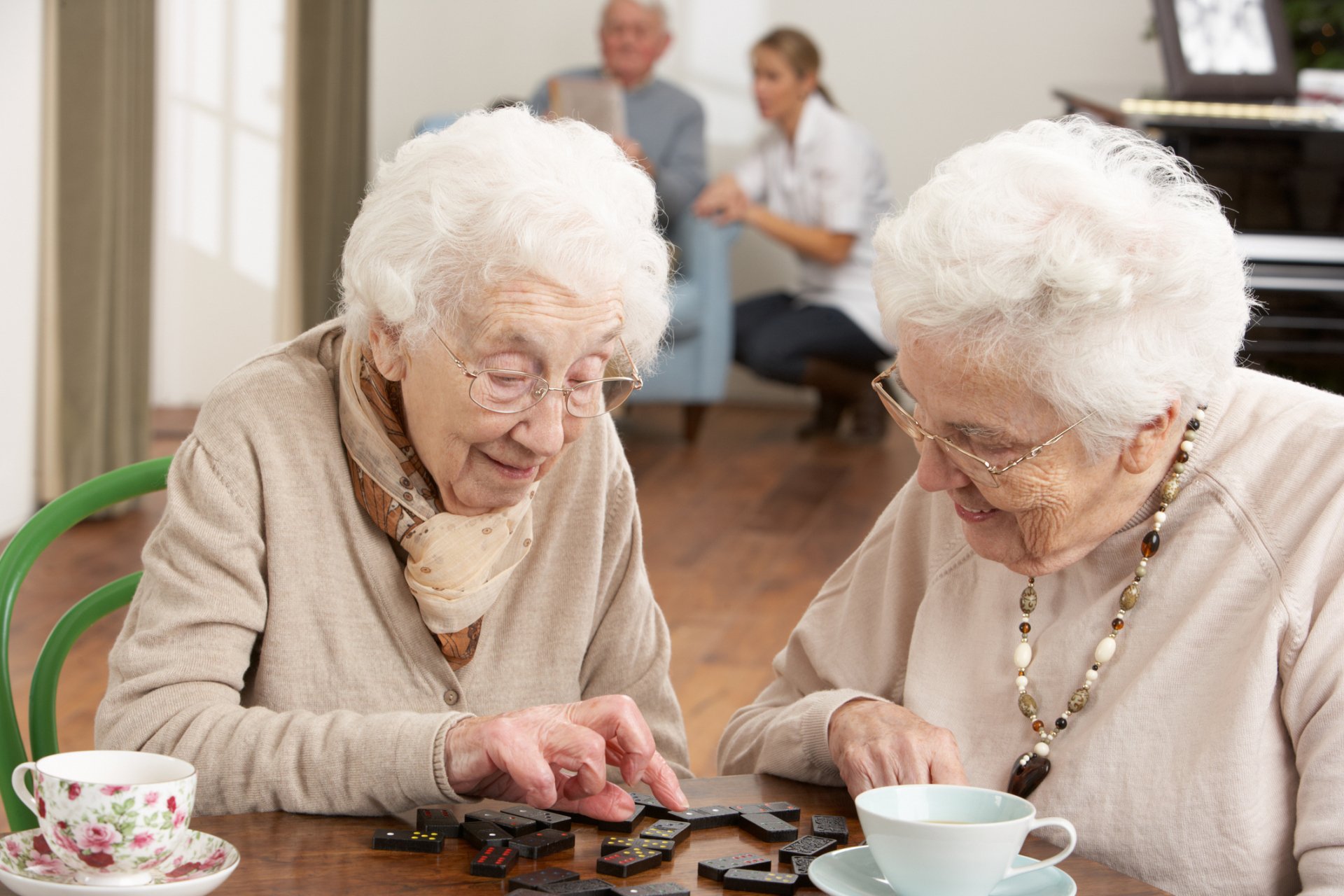
When choosing accommodations for a loved one dealing with memory issues, it can be tempting to think that only a spacious, private apartment will do. However, more and more families are discovering that shared rooms in memory care can actually help slow cognitive decline, promote engagement, and provide important financial savings.
The benefits of having a roommate are particularly evident in residential senior living, where generally fewer than 10 residents live in a suburban home with a select team of caregivers. At Assured Senior Living, we’d like to share some of these benefits with you.
Shared Rooms in Memory Care Can:
- Provide cueing that motivates activity . Maybe Mom used to love knitting. Back then, she was a self-starter. But now due to cognitive issues, she’s more likely to withdraw and be more reclusive. The good news is that with cueing provided daily by a roommate or staff member, she will be motivated to get up and get involved in the activities around her. And once she does, she could have an awesome day!
But first, she needs cues from someone close to her—and she can’t get it sitting in her room all day alone behind a closed door.
- Encourage socialization instead of isolation. Shared rooms in memory care keep people from being isolated in many ways. It’s important to remember that the goal in a residential home is get residents out of their rooms, so their bedroom becomes primarily the place where they sleep and rest—not where they spend their entire day. Here’s where a shared room plays a vital role: Dad sees his roommate going to breakfast, putting on a jacket for a walk around the neighborhood, or greeting a family member. Now he wants to do the same, which inspires him to start moving and interacting with others.
By contrast, if Dad were in a larger, private room with too many distractions, he might not be motivated to leave it often, which would likely result in further cognitive decline .
LP: https://info.assuredassistedliving.com/download-family-funding-guide
- Respect privacy and promote companionship . Personal dignity is respected and honored in residential senior living, just as it would be within any family. Assistance with bathing, dressing and grooming is provided in shifts, so that a resident is not observed by their roommate. The result is personal privacy when needed, as well as cueing that tells the roommate it’s time to arise and start the day, or time to start preparing for bed.
- Help reduce the effects of sundowning. The transition between day and night can cause changes in behavior for those with cognitive impairment. Confusion, agitation and anxiety can result. Knowing someone is close by at bedtime, and waking up to a familiar face, can be a positive experience. In addition, the smaller, more intimate, and more personal atmosphere of residential senior living— the comfort of living in a real home —can have very positive effects.
For example, at Assured Senior Living, we’ve seen a 45-55% reduction in wandering when a resident moves from a private room to a semi-private room in our residential community. Residents sleep better, and don’t get up as much at night. They also are less likely to wander, as our tightly-knit homes make it easy to navigate to the kitchen, den, patio, etc.
- Feel more like home. Most older adults have spent a good part of their life sleeping with, or very close to, someone…spouse, partner, or family member. It’s part of a familiar and often cherished routine , which is very important for an older adult with memory loss. Shared rooms in memory care can offer that soothing, reassuring element of companionship that is so beneficial.
- Give families better insight into their loved one’s care . When Mom shares a room, she’s more likely to get up and about each day, which means there are more eyes on her both in her room and in the residential space as well. Her eating habits, her hydration, her bathroom visits, her interactions with others…all are closely monitored and information can be easily relayed to the family. Knowing Mom is getting the stimuli she needs gives you confidence that she’s not alone or forgotten.
At Assured Senior Living, our family members can have the reassurance their loved one is in the very best of hands—and that they have the opportunity to thrive physically, intellectually and socially.
- Offer a more affordable choice. Shared rooms in memory care also offer a financial benefit. Not only are you stretching your dollars, consider the value. If Mom is only in her room to sleep and rest, and busy engaging with others in other parts of the home most of the day—which evidence-backed research has proven is best for her physical and cognitive health—why pay for a private room? Shared rooms in memory care can save you as much as $1,500 to $2,000 a month.
There is a better way. We are redefining memory care for the modern world.
Download our free guide, A Family Guide to Funding Senior Care Housing . Or contact us today.


